BIOGRAPHY
| Donnelley, Sarah | Big things grow |
| Greguric Paul J. | The man behind the prize |
| Grimshaw, Charlotte | The mirror book |
| Malcolmson, Patricia | A nurse’s war |
| Spencer, John | Wartime fun |
Return to top
GENERAL FICTION
| Alexandra, Belinda | The French agent |
| Atkinson, Kate | Shrines of gaiety |
| Bartz, Andrea | We were never here |
| Boyne, John | All the broken places |
| Cahill, James | Tiepolo blue |
| Cunningham, Sophie | This devastating fever |
| Dicker, Joel | The enigma of room 622 |
| Dusapin, Elisa Shua | THE PACHINKO PARLOUR |
| Flynn, Vince | Oath of loyalty |
| Frew, Peggy | Wildflowers |
| Glass, Ava | Alias Emma |
| Hall, Bronwyn | Gone to ground |
| Hamid, Mohsin | The last white man |
| Hannan, Victoria | Marshmallow |
| Lalli, S.C. | Are you Sara? |
| MarÃas, Javier | Dance and dream |
| McEwan, Ian | Lessons |
| McMahon, Katie | The accident |
| Montefiore, Santa | An Italian girl in Brooklyn |
| Morrissey, Di | The Night Tide |
| Pollock, Katherine | Her fidelity |
| Serong, Jock | The settlement |
| Steel, Danielle | The challenge |
| Styles, Emma | No country for girls |
 The Enigma of room 622 by Joel Dicker
The Enigma of room 622 by Joel Dicker
The discovery of a body in room 622 of the Hôtel de Verbier in the Swiss Alps propels this intricately plotted tour de force from Swiss author Dicker (The Truth About the Harry Quebert Affair). Sixteen years after the unsolved murder, author Joël Dicker, who’s reeling from the recent death of his beloved publisher, arrives at the luxury hotel, where he and an aspiring author he meets by chance resolve to explore why there’s no longer a room 622. The present-day action shifts between their research about the cold case, full of the reminiscences of the few witnesses they can track down, and the story of Macaire Ebezner, whose planned succession to the presidency of his family bank—which was holding its annual gala at the hotel at the time of the murder—is being thwarted by a board who prefers his business rival, rising star Lev Levovich. Flashbacks to the days leading up to the murder include the points of view of Macaire, Lev, and Macaire’s wife, each of whom comes across as brilliant and bumbling in turn. Dicker’s quasi-autobiographical frankness, his heartfelt tribute to his publisher, and the pull between past and present keep the pages turning. This astonishingly smart, emotionally satisfying, and strangely intimate novel is not to be missed. Publisher’s Weekly, September 2022
 Alias Emma by Ava Glass
Alias Emma by Ava Glass
In the pseudonymous Glass’s superb debut, a series launch, British intelligence agent Emma Makepeace undertakes her first truly important assignment from her boss, Charles Ripley. Spies for the Russian military have been killing former Russian scientists now living in the U.K. Ripley wants Emma to protect Michael Primalov, the son of Russian physicists who spied for England. Michael acquiesces to Emma’s help after a close call with two assassins. When Emma phones her boss for help, Ripley is suspiciously unavailable; she and Michael are on the run from the Russians—and maybe someone from within the Secret Service. As they cross London in an effort to reach the safety of MI6, they have to avoid the city’s ubiquitous security cameras, electronic surveillance, and roving teams of Russians. Along the way, Glass (the Harper McClain mysteries as Christi Daugherty) smoothly works in Emma’s backstory, which includes her selection and training for the Service and the highly personal reasons that made becoming a spy “everything she’d dreamed of.” Intense, cinematic action propels this terrific old-fashioned thriller neatly brought up to date. Glass is off to an impressive start. Publisher’s Weekly, April 2022
 All the broken places by John Boyne
All the broken places by John Boyne
An old woman is seen at key moments in a lifelong struggle to deal with the guilt-laden secrets of her youth. Irish writer Boyne mines his 2006 novel, The Boy in the Striped Pajamas, for this sequel about the boy’s sister. Gretel was 12 in the earlier book when she lost her brother, Bruno, while they lived next to Auschwitz, where their father was the commandant. In the new novel, she narrates two storylines, alternating between several months before her 92nd birthday and some 10 years in her teens and 20s. In the earlier narrative, she and her mother have changed their names and fled Germany for Paris, where they fall afoul of a group hunting collaborators. Gretel moves to Australia when her mother dies but must leave after meeting a figure from Auschwitz who can expose her. The other narrative finds the nonagenarian in London dealing with a friend sliding into dementia (and the subject of a delightful twist in the tale) and troubling new neighbors in the flat below. The abusive father in this family will spark the last of several episodes in which Gretel faces the threat of having her wartime past revealed. Through these, her sense of guilt emerges as a complex amalgam of feelings about her father’s role in the death camp, her initial ignorance and eventual realization of what Auschwitz represented, her silence after the war, and the part she thinks she played in Bruno’s death. Boyne handles the alternating narratives well and uses them to create suspense, but they contribute to some avoidable repetitiousness in the writing and an occasional sense of aimlessness in the plot, unlike the taut, effective economy of Striped Pajamas. The ending may spark fierce debate, for what seems to be an act of redemption also smacks of self-justification that, in this fraught context, evokes grim historical antecedents. A complex, thoughtful character study that avoids easy answers. Kirkus Review, October 2022
Return to top
HISTORICAL FICTION
| Ellis, Tim Darcy | The secret diaries of Juan Luis Vives |
| Harris, Robert | Act of oblivion |
| Iggulden, Conn | Lion |
| O’Farrell, Maggie | The marriage portrait |
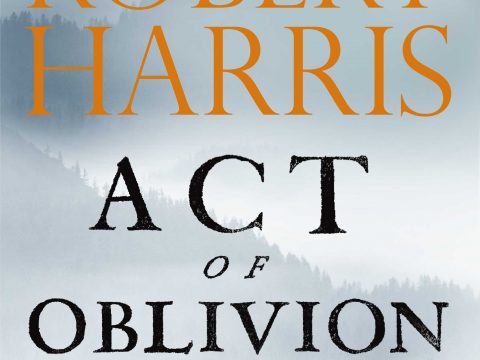 Act of oblivion by Robert Harris
Act of oblivion by Robert Harris
Harris (Munich) again turns a historical event into a canny page-turner. Following the restoration of the Stuart Dynasty to the throne of England, King Charles II and his court seek revenge for the execution of the monarch’s father, Charles I, who was beheaded in 1649. The task of identifying and locating those involved falls to Richard Nayler, “one of those shadows who move, anonymous, along the private passages and through the council chambers of every nation in every age.” Nayler has a personal grudge against his quarry; his wife died giving birth to their stillborn son after Cromwell’s soldiers arrested him for participating in an illegal prayer service. After Nayler tracks down the death warrant ordering Charles I’s beheading, he devotes himself to finding the 13 signatories still at large. The bulk of the narrative focuses on his Javert-like search for Edward Whalley and his son-in-law William Goffe. The fugitives live desperate lives in New England, constantly fearful of betrayal even from those who shelter them. Harris humanizes the hunter and the hunted, and brings to life an obscure chapter in colonial American history. This further burnishes Harris’s reputation as a talented author of historical suspense. Publisher’s Weekly, July 2022
 The marriage portrait by Maggie O’Farrell
The marriage portrait by Maggie O’Farrell
This lush, provocative historical from National Book Critics Circle Award winner O’Farrell (Hamnet) follows a young woman who is married off at 15 amid the complex world of 16th-century Italian city-states. O’Farrell bases her heroine, Lucrezia de’ Medici, on a real-life figure depicted in Robert Browning’s poem “My Last Duchess,” who was murdered by her husband. When the reader first meets Lucrezia, she’s been married for not quite a year and faces mortal danger in what O’Farrell describes as a “wild and lonely place.” The narrative moves back and forth from the nearly deserted fortress where Lucrezia plays a game of cat and mouse with the duke of Ferrara, the husband who might be attempting to kill her, and the events that have brought her here. As a child of a noble family in Florence, she was untamable and passionate about making art. Now, the duke grows increasingly impatient with her as she fails to produce the heir he needs to secure his position. O’Farrell excels at sumptuous set pieces: Lucrezia’s encounter with a tiger her father keeps in the basement beneath their palace, the wedding where she is draped and almost swallowed up by her gown, her meetings with the mysterious figures at her new home, particularly her enigmatic husband. By imagining an alternative fate for Lucrezia that deviates from the historical record, the author crafts a captivating portrait of a woman attempting to free herself from a golden cage. Fans of the accomplished Hamnet won’t be disappointed by this formidable outing. Publisher’s Weekly, June 2022
Return to top
MYSTERY
| Arlidge, M. J. | Cat and mouse |
| Carter, Chris | Genesis |
| Coles, Richard | Murder before Evensong |
| Ellis, Kate | The stone chamber |
| Galbraith, Robert | The ink black heart |
| Harper, Jane | Exiles |
| Kelly, Jim | The mathematical bridge |
| Manning, Kirsty | The Paris mystery |
| Matheson, Nadine | The binding room |
| McCall Smith, Alexander | A song of comfortable chairs |
| McDermid, Val | 1989 |
| Osman, Richard | The Bullet That Missed |
| Perry, Anne | A darker reality |
| Quinn, Cate | Blood sisters |
| Robb, J. D. | Desperation in death |
| Sigurðardóttir, Yrsa | The fallout |
| Stimson, Tess | THE NEW HOUSE |
| Various | Marple |
| Weiden, David Heska Wanbli | Winter counts |
| Welsh, Irvine | The long knives |
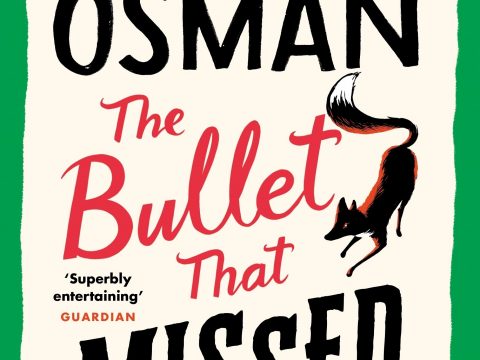 The Bullet That Missed by Richard Osman
The Bullet That Missed by Richard Osman
Bestseller Osman’s diverting third Thursday Murder Club mystery (after 2021’s The Man Who Lived Twice) delivers laughs along with a nicely woven plot involving fraud, murder, and life in the Kent retirement village of Coopers Chase. At the club’s regular meeting in the Jigsaw Room, the four members—Elizabeth, a retired but still well-connected British spy; Ibrahim, a well-meaning psychiatrist; Ron, a still-feisty activist for workers’ rights; and the unexpectedly shrewd Joyce, whose diary entries enliven the narrative—decide to tackle the cold case of Bethany Waites, a journalist for the local TV station whose wrecked car was found at the bottom of a cliff 10 years earlier. The police declared it a murder, surmising that Bethany’s body had been washed out to sea. The group’s investigation stirs up a hornet’s nest and leads to another death, a kidnapping, and blackmail. The pace is breezy, the characters are intelligent and varied in their interests and backgrounds, and the humor is often pitched to readers who understand the vagaries of getting older. Osman reliably entertains. Publisher’s Weekly, June 2022
 Desperation in death by J. D. Robb
Desperation in death by J. D. Robb
Set in 2061, bestseller Robb’s solid 55th novel featuring Lt. Eve Dallas, head of the New York City Police Security Department (after Abandoned in Death), takes Eve and her partner, Det. Delia Peabody, to a crime scene in Manhattan’s Battery Park, where a 13-year-old girl has been impaled through the chest with a spear of wood. Eve presses her identi-pad to the victim’s right thumb and up pops the name Mina Cabot of Devon, Pa., who vanished from her home months ago while returning from soccer practice. The case leads Eve to other murders, abductions, and the disturbing world of child trafficking, besides stirring up traumatic memories from her own past. Since the principals behind these abhorrent crimes are identified early on, and Eve and company do little investigating as such (electronic devices readily provide needed information), the pleasure, as always, lies in watching Eve stride into danger and triumph over her arrogant adversaries—and in the rapport between Eve and her sexy, supportive, and staggeringly wealthy husband, Roarke. Robb once again delivers exactly what her fans expect. Publisher’s Weekly, June 2022
 Winter Counts by David Heska Wanbli Weiden
Winter Counts by David Heska Wanbli Weiden
Virgil Wounded Horse, the half Lakota, half white narrator of Weiden’s gorgeous debut, serves as a fists-for-hire enforcer on South Dakota’s Rosebud Indian Reservation. Ever since Virgil’s sister died in a car accident three years earlier, her son, Nathan, has been living with him. Back when Virgil was an alcoholic, his erratic behavior drove away the love of his life, Marie Short Bear, but now he’s sober, and after Nathan ends up in the hospital from an overdose of heroin, Marie returns to help Virgil take on the bad guys responsible for bringing heroin to the reservation. To complicate matters, Marie faces a decision about medical school in New Mexico, right as she and Virgil are falling back in love. The novel twists delicately around various personal conflicts while artfully addressing issues related to the politics of the reservation. Weiden combines funny, complex, and unforgettable characters with strong, poetic prose (“This was the winter of my sorrow, one I had tried to elude but which had come for me with a terrible cruelty”). This is crime fiction at its best. Publisher’s Weekly, June 2020
Return to top
NON FICTION
| Cameron-Ash, Margaret | Beating France to Botany Bay |
| Howard, John | A sense of balance |
| Vigurs, Kate | Mission France |
| Webb, Emily | Suburban true crime |
Return to top
SCIENCE FICTION & FANTASY
| King, Stephen | Fairy tale |
| Koepp, David | Aurora |
| Kuang, R. F. | The burning god |
| Novik, Naomi | The last graduate |
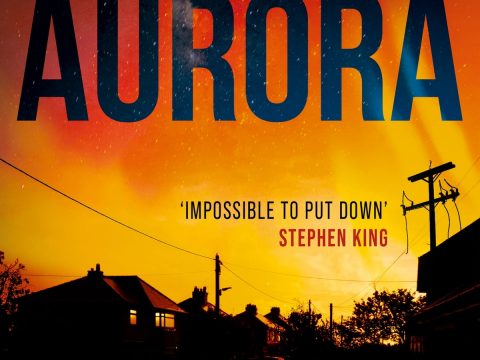 Aurora by David Koepp
Aurora by David Koepp
In this chilling scientific thriller from Koepp (Cold Storage), astronomers learn that “a giant cloud of solar plasma drenched with magnetic field lines” will strike Earth in less than a day and cause a devastating global blackout. Since the U.S. government doesn’t control power plants, it’s up to the states to shut down transformers to significantly mitigate the impact of the solar strike. Inevitably, the governors resist such a move, and the country is plunged into cascading chaos. With cell towers and electrical lines down, the president can’t even communicate with anyone not within shouting distance. The ordinary people who must deal with the extraordinary circumstances include Aubrey Wheeler, of Aurora, Ill., whose brutish ex-husband abandoned a teenage son from a previous relationship for her to parent; 88-year-old retired college professor Norman Levy, a neighbor of Wheeler’s; and Patrick Brady, the loyal assistant to a billionaire with some eccentric ideas for surviving the blackout. Koepp’s imaginative plotting will keep readers turning the pages to learn the fates of characters they readily become invested in. Michael Crichton fans will hope for more from Koepp. Publisher’s Weekly, March 2022
 The burning god by R.F. Kuang
The burning god by R.F. Kuang
In the final installment of the Poppy War trilogy, a warrior shaman resolves to seize control of her homeland from enemies far and near, no matter the cost. Having suffered severe losses and betrayals, Rin rallies the Southern Coalition in an effort to defeat the Mugenese troops still in Nikan, the president of the Nikara Republic, and the foreign menace of the Hesperians, with their almost unimaginably advanced technology. But a southern army is not enough, and Rin must also rely on the unpredictable powers of her wild god, the Phoenix, and form a risky alliance with the Trifecta that once ruled Nikan. Drawing heavily on 20th-century Chinese history, Kuang continues to explore familiar themes—including imperialism, racism, colorism, and the terrible and long-lasting effects of war—while deepening Rin’s portrayal, as Rin experiences moments of heartfelt sympathy and connection with others while also continually seeking power and succumbing over and over to her own hubris and paranoia. This installment dwells heavily on the devastating realities of war and the costs of leading a nation in crisis but does not sink into overly grotesque meditations—or perhaps we, along with Rin, have become desensitized and hardened. Ultimately, despite the epic scope of the plot, the novel hinges on the relationships between Rin and those closest to her: A nation may rise or fall and thousands may lose their homes or starve in the process, but their fate depends not on magic from the divine plane but on simple, fallible people. A dark and devastating conclusion that transcends its roots in historical fact to examine brutal truths. Kirkus Review, November 2020
Return to top
New additions to eBooks at SMSA
EBOOKS
| General | Hamdy, Adam | The Other Side of Night |
| General | Hore, Kathryn | The Stranger |
| General | McGovern, Petronella | The Liars |
| General | Teran, Boston | God is a Bullet |
| Historical Fiction | Burton, Jessie | The Miniaturist |
| Mystery | Hammer, Chris | Tilt |
| Mystery | Harper, Jane | Exiles |
| Mystery | King, Laurie R. | Back to the Garden |
| Mystery | Osman, Richard | The Man Who Died Twice |
| Mystery | Wrobel, Stephanie | This Might Hurt |
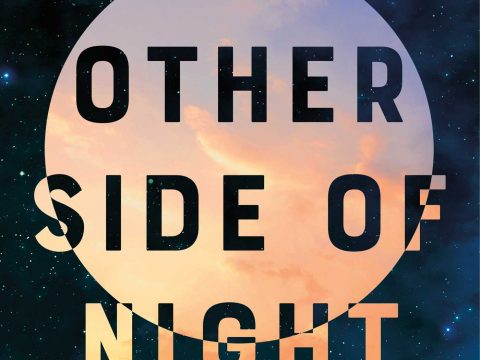 The Other Side of Night by Adam Hamdy
The Other Side of Night by Adam Hamdy
In the preface to this stellar thriller from British author Hamdy (the Pendulum trilogy), popular novelist David Asha reflects on the close bond he shared with his son, Elliot, grateful for their time together but lamenting the tragic events that drove them apart. In the main narrative, various pertinent letters and emails, court and police reports, and news clippings tell the story of disgraced police detective Harriet Kealty’s monumental impact on Elliot’s life. Though dismissed from the force over manslaughter allegations, Harriet conducts a personal investigation into the deaths of university physicist Elizabeth Asha and her husband, David, believing foul play may be involved. The couple’s orphaned 10-year-old son has been entrusted to a family friend, Ben Elmys, a man Harriet once held strong feelings for, but who spurned her love. Mistrustful of Ben and concerned about the boy’s safety, Harriet goes on a private crusade to uncover evidence of wrongdoing, with shocking consequences. Intelligently plotted and powerfully told, Hamdy’s deviously twisty tale of fate and coincidence, love and courage, and profoundly tough choices will shock, stir, and haunt readers long after the final page. Hamdy has upped his game with this one. Publisher’s Weekly, June 2022
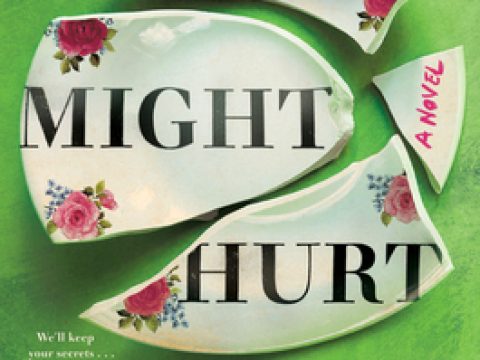 This Might Hurt by Stephanie Wrobel
This Might Hurt by Stephanie Wrobel
This outstanding psychological thriller from Wrobel (Darling Rose Gold) centers on two estranged sisters. Natalie Collins, an executive at a Boston branding agency, and Kit Collins, a receptionist at a Brooklyn accounting firm, are both wrestling with guilt, anger, fear, and the horrible “barnacle” of loneliness after their mother’s death. Each is keeping secrets from the other. Six months after Natalie last had any word from Kit, she suddenly receives an anonymous threatening email from the Wisewood Wellness & Therapy Center in Rockland, Maine. Kit has retreated there to “inward focus” through a self-improvement program to realize a “maximized self.” When Natalie races to the isolated island compound, she discovers a life-sucking cult guided by a guy his acolytes call the Teacher. Atmospheric details include the January wind that “shrieks like a woman being stabbed,” an abandoned schoolhouse in a forest, and a haunting initiation sequence. Some of Houdini’s mentalist feats play a significant role as the action builds to final bombshell revelations. Fans of Liane Moriarty’s Nine Perfect Strangers will want to check this out. Publisher’s Weekly, November 2021
Return to top
AUDIOBOOKS
| General | Pavone, Chris | Two Nights in Lisbon |
| General | MacNeal, Susan Elia | Mother Daughter Traitor Spy |
| Mystery | Allen, Meri | Mint Chocolate Murder |
| Mystery | Bassett, Tony | Murder on Oxford Late |
| Mystery | Fitzsimmons, PJ | The Case of the Canterfell Codicil |
| Mystery | Modglin, Kiersten | Tell Me the Truth |
| Mystery | Silvis, Randall | The Deepest Black |
| Mystery | Thompson, Victoria | Murder on Lexington Avenue |
| Mystery | Todd, Marion | See them run |
| Science Fiction & Fantasy | Halle, Karina | River of Shadows |
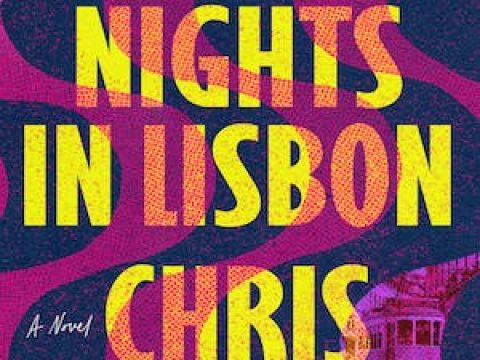 Two Nights in Lisbon by Chris Pavone
Two Nights in Lisbon by Chris Pavone
A suspicious kidnapping in Lisbon, Portugal, drives this excellent thriller from Edgar winner Pavone (The Paris Diversion). When American businessman John Wright vanishes one morning from his hotel, his wife, Ariel Pryce, insists he was kidnapped, but issues soon emerge that make both the Lisbon police and the CIA skeptical. Why, for instance, are there no witnesses or video evidence of a crime taking place? Why did Pryce, whose account of the incident is fuzzy, change her legal name a decade earlier? And what’s to be made of Wright’s short stretch in the CIA a while back? When Pryce comes up with €2 million for a ransom payoff, the web leads investigators to the bank account of the current U.S. treasury secretary, who’s soon to become the U.S. vice president and has a past that could subject him to blackmail. Pavone skilfully layers plot details, often shifting points of view, all the way to the end of this superior, elegantly crafted yarn. The enigmatic central character, whose moral compass is set a bit differently than most, sets this above the pack. Publisher’s Weekly, February 2022
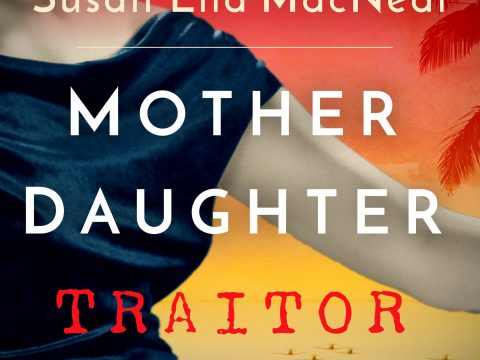 Mother Daughter Traitor Spy by Susan Elia MacNeal
Mother Daughter Traitor Spy by Susan Elia MacNeal
In this riveting standalone from Edgar finalist MacNeal (the Maggie Hope WWII mysteries), mother and daughter Violet (“Vi”) and Veronica Grace move from New York to Santa Monica in 1940 and encounter homegrown Nazis. Veronica is smarting from the fallout of a love affair that has derailed her budding journalism career, and Vi is looking for a new path after her husband’s death. Veronica begins to do typing for Bund member Donald Pierce McDonnell, who introduces her to an array of people spouting antisemitic and pro-Hitler sentiments, and Vi meets their associates at a gathering of the isolationist group America First, including a prominent female aviator. As the appalled Veronica and Vi find that their respective secretarial and needlework skills provide an entrée to learning about the group’s disturbing and violent plans, they join up with operatives Ari Lewis and Jonah Rose, who keep tabs on such activities since the FBI is preoccupied with hunting communists rather than Nazis. Featuring characters based on real people, MacNeal provides a sobering reminder that pernicious elements can lie very close to home. Publisher’s Weekly, July 2022


